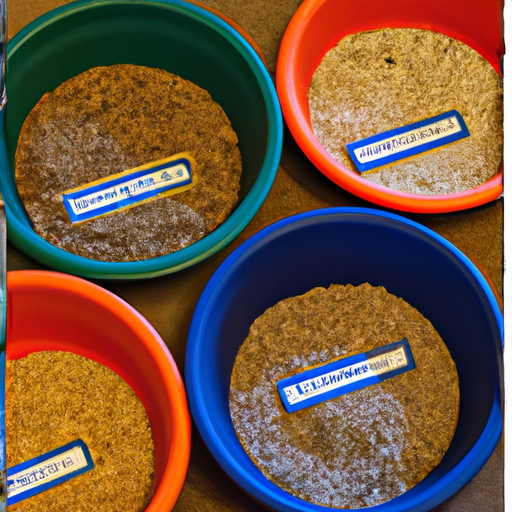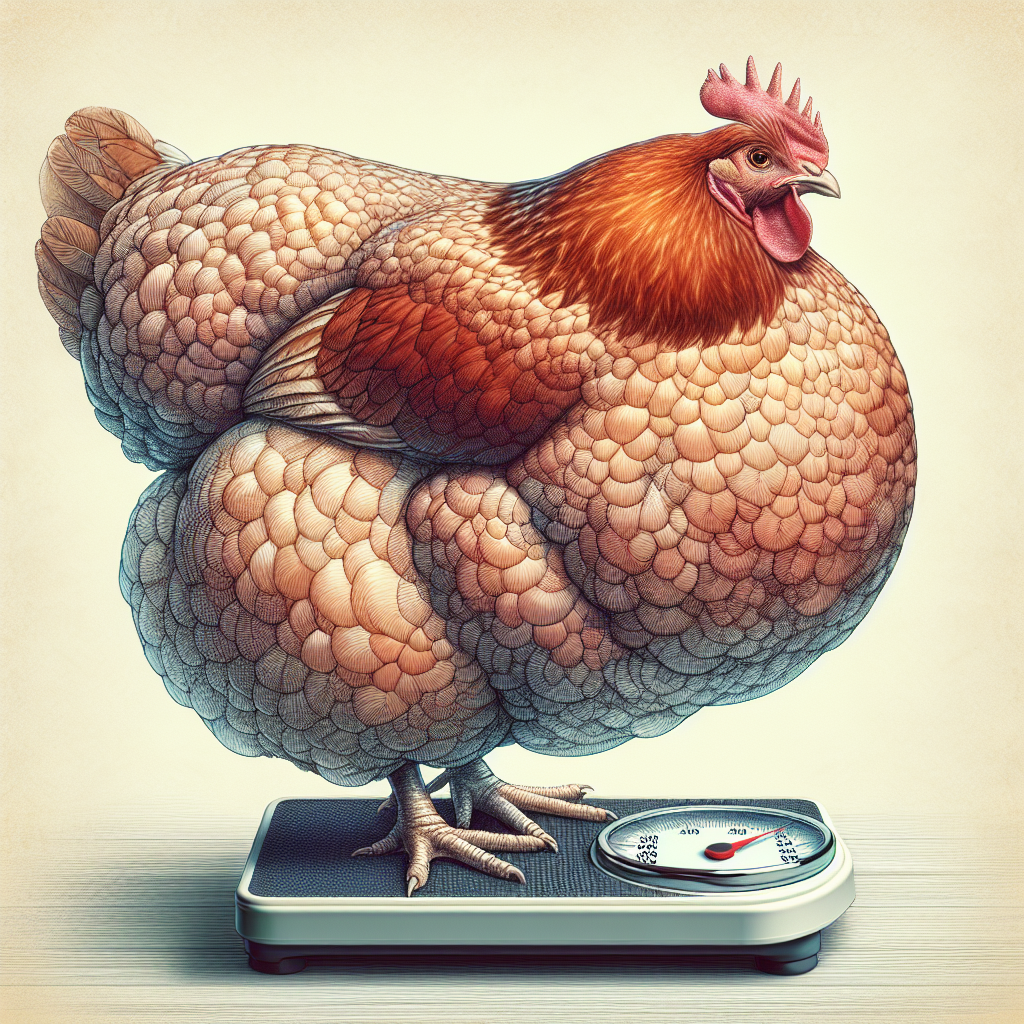Are you feeling overwhelmed by the wide variety of options when it comes to selecting feed for your flock? Well, worry no more! This article is here to guide you through the process of choosing the perfect type of feed for your feathered friends. Whether you have a flock of chickens, ducks, or any other poultry, we’ll help you understand their specific nutritional needs and provide you with valuable tips on how to meet those requirements. So, grab a cup of coffee and join us on this informative journey to ensure your flock’s health and happiness.
Factors to Consider
When it comes to choosing the right type of feed for your flock, there are several factors that you should consider. Understanding these factors will help ensure that you are providing your chickens with the nutrition they need to thrive.
Nutritional Requirements
The nutritional requirements of chickens can vary depending on their age, breed, and health condition. It’s important to understand the specific nutrient needs of your flock in order to select a feed that will meet those requirements.
Chickens require a balanced diet that includes protein, carbohydrates, fats, vitamins, and minerals. Depending on their stage of life, they may need different levels of these nutrients. For example, chicks require a feed that is higher in protein to support their rapid growth, while laying hens need feeds with higher levels of calcium to support eggshell production.
Age and Stage of Life
The age and stage of life of your chickens is an important factor to consider when choosing their feed. Different feeds are formulated to meet the specific needs of birds at different stages of development.
Starter feed is designed for baby chicks and is higher in protein to support their growth. Grower feed is for young birds that are not yet laying eggs and contains the necessary nutrients for them to develop properly. Layer feed is formulated for hens that are laying eggs, with the addition of calcium for eggshell production. Broiler feed is for meat birds and contains higher levels of protein and energy to support rapid growth.
Breed and Size
The breed and size of your chickens can also influence their nutritional requirements. Different breeds may have different dietary needs, so it’s important to choose a feed that is appropriate for your specific breed.
Additionally, the size of your chickens can impact their feed consumption. Larger breeds may require more feed to meet their energy needs, while smaller breeds may require less. Consider the average size of your chickens when selecting the appropriate feed.
Activity Level
The activity level of your chickens is another factor to consider when choosing their feed. Chickens that are more active, such as free-range or pasture-raised chickens, may require a higher energy feed to support their increased activity and exercise.
On the other hand, chickens that have more limited access to space and exercise may require a feed with slightly lower energy levels to prevent them from becoming overweight.
Health Condition
The health condition of your chickens should also be taken into consideration when selecting their feed. If you have chickens that have specific health conditions or dietary restrictions, you may need to choose a specialized feed to meet their specific needs.
For example, if you have chickens that are prone to certain medical conditions, such as respiratory issues or digestive problems, you may need to choose a feed that is formulated to support their overall health and address any specific issues they may have.
Types of Feed
Understanding the different types of feed available will help you make the best choice for your flock. Here are the main types of feed commonly used for chickens:
Processed Feeds
Processed feeds are commercially-produced feeds that are formulated to meet the nutritional needs of chickens. These feeds are typically available in different formulations based on the age and stage of your chickens. Processed feeds are convenient and have a balanced nutrient profile, making them a popular choice for many chicken keepers.
Whole Grains
Whole grains can also be a good option for feeding your flock. This includes grains like corn, wheat, oats, and barley. Whole grains provide chickens with a source of energy and can be a cost-effective option if you have access to a local grain source.
However, it’s important to note that whole grains alone may not provide all the necessary nutrients for your flock, so it’s recommended to provide a balanced feed along with whole grains.
Supplements
Supplements can be used to provide additional nutrients to your chickens. These can include things like vitamins, minerals, and probiotics.
Supplements are usually added to your chickens’ feed or provided separately. They can be particularly helpful if you have chickens with specific health conditions or if you want to boost the overall health and well-being of your flock.
Foraged Feed
Foraging is a natural behavior for chickens and allows them to supplement their diet with insects, grasses, and other plants. Allowing your chickens to forage can provide them with additional nutrients and help fulfill their natural instincts.
If you have sufficient space and a suitable environment for free-ranging or allowing your chickens to graze, foraged feed can be a great addition to their diet. However, it’s important to ensure that they still have access to a balanced feed to meet their nutritional needs.
Dos and Don’ts for Choosing Feed
Here are some important dos and don’ts to keep in mind when choosing feed for your flock:
Do Consult a Poultry Nutritionist
If you’re unsure about the specific nutritional needs of your flock, it can be helpful to consult with a poultry nutritionist. They can provide guidance and recommendations based on the specific requirements of your chickens.
Do Read Labels and Ingredients
When choosing a feed, it’s important to read the labels and ingredients carefully. Look for feeds that provide a balanced nutrient profile and avoid feeds that contain excessive amounts of fillers or low-quality ingredients.
Don’t Over Depend on Cheap Feed
While cost is certainly a factor to consider, it’s important not to rely solely on cheap feed options. Cheap feeds may not provide the necessary nutrients for your flock and could lead to health issues or poor growth.
Do Consider Availability and Cost
While it’s important to choose a feed that meets the nutritional needs of your flock, it’s also important to consider the availability and cost of the feed. Make sure that you can consistently access the feed you choose and that it fits within your budget.
Don’t Neglect Water and Grit
In addition to feed, it’s important to provide clean and fresh water for your chickens at all times. Water is essential for digestion and overall health. Additionally, chickens also require grit, which helps them break down their food in their gizzard. Make sure to provide access to grit to support proper digestion.
Feeding Strategies
Different stages of a chicken’s life require different types of feed. Here are some feeding strategies for various stages of your flock’s life:
Starter Feed for Chicks
When chicks are first hatched, they should be fed a starter feed. This feed is specially formulated with higher protein levels to support their rapid growth and development. Starter feed is usually fed for the first four to six weeks of a chick’s life.
Grower Feed for Young Birds
Once chicks reach four to six weeks of age, they can transition to a grower feed. Grower feed contains slightly less protein than starter feed but still provides the necessary nutrients to support growth. This feed is typically fed until your birds reach the point of lay, around 18-20 weeks of age.
Layer Feed for Hens
Once your hens reach the point of lay, they should be transitioned to a layer feed. Layer feed is formulated with higher levels of calcium to support eggshell production. It also contains the necessary nutrients to support overall health and egg production.
Broiler Feed for Meat Birds
If you plan on raising chickens for meat, you will need to provide them with a specialized broiler feed. Broiler feed is high in protein and energy to support rapid growth and weight gain. This feed is typically fed until the birds reach the desired weight for processing.
Special Feeds for Specific Needs
There are also specialized feeds available for specific needs or conditions. For example, if you have chickens that are prone to feather picking or have feather loss, there are feeds available that can help support feather regrowth. Be sure to consult with a poultry nutritionist or veterinarian if you have specific needs or concerns.
Raising Chickens on a Budget
Raising chickens can be a cost-effective way to produce your own eggs and meat. Here are some strategies to help you raise chickens on a budget:
Bulk Purchase and Storage
Consider purchasing feed in bulk to save money. Buying larger quantities of feed can often be more cost-effective. Make sure to store the feed properly in airtight containers to maintain freshness and prevent spoilage.
Mixing Your Own Feed
If you have access to local grain sources and are knowledgeable about poultry nutrition, you may consider mixing your own feed. This allows you to have more control over the ingredients and can potentially save you money. However, it’s important to ensure that the feed you mix provides all the necessary nutrients for your flock.
Foraging and Supplementing
Allowing your chickens to forage and supplement their diet with insects, grasses, and other plants can help reduce their overall feed consumption. This can be particularly beneficial if you have space for free-ranging or providing access to grazing areas.
Using Alternative Protein Sources
Protein can be one of the more expensive components of chicken feed. Consider using alternative protein sources, such as mealworms or black soldier fly larvae, to supplement your flock’s protein needs. These can be easily raised at home or purchased in bulk.
Feeding Tips and Tricks
Here are some additional tips and tricks to keep in mind when feeding your flock:
Implement a Feeding Schedule
Establishing a feeding schedule can help ensure that your flock receives regular meals and prevents overfeeding. Additionally, having a consistent feeding schedule can help with flock management and observation.
Ensure Proper Storage and Freshness
Proper storage of feed is crucial to maintain its freshness and nutrient content. Store feed in a cool, dry place to prevent spoilage and moisture accumulation. Avoid storing feed for extended periods of time to ensure freshness.
Gradually Change Feed Types
If you need to switch your flock to a different feed type, it’s important to do so gradually. Gradually introduce the new feed over a period of several days to allow your chickens to adjust to the new diet.
Monitor Flock’s Health and Weight
Regularly monitor your flock’s health and weight to ensure that they are receiving the appropriate amount of feed and are maintaining a healthy body condition. If you notice any changes in behavior, appetite, or weight, consult with a poultry veterinarian.
Rotate Feeding Methods
Variety in a chicken’s diet can be beneficial for their overall health and well-being. Consider rotating feeding methods, such as providing whole grains or allowing foraging, to keep your flock stimulated and engaged.
By considering the factors of nutritional requirements, age and stage of life, breed and size, activity level, and health condition, you can make an informed decision when choosing the right type of feed for your flock. Remember to consult with a poultry nutritionist or veterinarian for personalized guidance, and have fun experimenting with different feeding strategies to provide your chickens with the best possible care.




